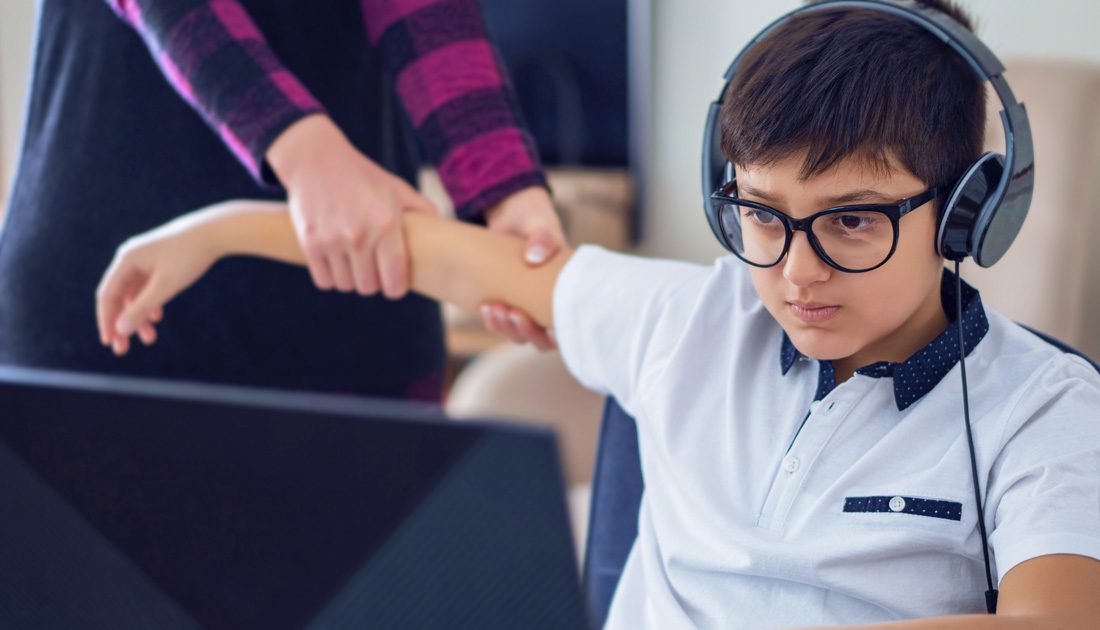From gaming to substances, a psychotherapist weighs in.

Addiction can be both hereditary and a product of environmental causes that may include a trauma, such as domestic violence or bullying. “This may lead to depression or anxiety that goes unresolved in teens and young adults. Individuals may cope in different ways,” says Sharnell Myles, psychotherapist and senior vice president of operations at Embark Behavioral Health, a nationwide mental health network of outpatient centers and residential programs for preteens, teens and young adults with locations in Buckhead and Alpharetta. “What’s fascinating is that, biologically, gaming, using substances, watching porn or gambling are activating the same reward area of the brain,” Myles says.
But when is it just typical teen experimentation or fun versus a real issue? What damage can it really cause long-term, and how can parents help their kids navigate addiction? Here, Myles offers some tips.
Concerning Behaviors
It’s cause for concern when any habit or unwanted behavior starts to impact more of the day for your child. “So if they feel the intense urge to game or use a substance often, or if you see them begin to isolate themselves, lose relationships or have intense anger when they can’t do the thing, it’s time to step in,” Myles says. She adds to also look out for a physiological response to not being able to vape marijuana, for instance, which might cross the line from use into abuse and addiction.
Inherent Dangers
With substances, Myles says there is a mental health threat in utilizing them to cope with underlying depression or anxiety, as well as educational risks, such as dropping out of school. There are also family- related risks, such as increased discord within the home.
Gaming is one of the top gateways to exploitation, advises Myles, who as a trauma specialist has worked in the area of child sex trafficking for more than 20 years. The other risky piece of gaming addiction is developmental. “If you have a kid constantly sitting in front of the TV/computer/gaming screen, it does have a significant impact on brain development, including ADD and ADHD, as well as education.”
Porn addiction can also be a gateway to exploitation by adults, and it may cause teens to start engaging in or escalating risky behaviors and to act out, she notes.
How Parents Can Help
In general, communication is key. “If parents and their children are able to communicate about good things and tough things, then the kids will come to them when they are having issues with depression or feel like gaming is becoming too much or someone approaches them in the wrong way,” says Myles, who encourages parents to talk to kids in a nonjudgmental way.
What’s more, she suggests getting youths involved in extracurricular activities and family time, which can be as simple as cooking or doing puzzles together. “Don’t allow your kids to isolate or spend many hours in front of a screen,” Myles says. “At the same time, get to know your kid as a kid. Don’t expect them to be a mini-adult or beyond their years.”
Lastly, normalize mental health. For some parents, that can mean sharing their own stories.
Seeking Professional Help
“Don’t wait until the last minute when things are at their worst to reach out for professional help,” Myles says. She recommends parents check in with a professional at the first sign of seeing some type of addiction or unwanted or unusual behavior. Embark can set up a no-cost appointment within 24 hours to do an assessment to see if it’s just normal behavior or if there’s a diagnosis.
EMBARK BEHAVIORAL HEALTH
770.230.7345
embarkbh.com
@embark_bh
Managing Editor and Wellness Columnist at Simply Buckhead. Blogger at Badass + Healthy.












